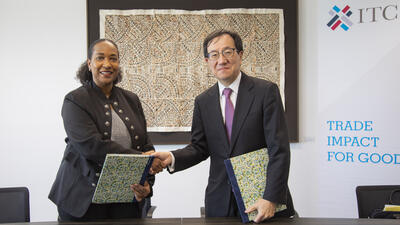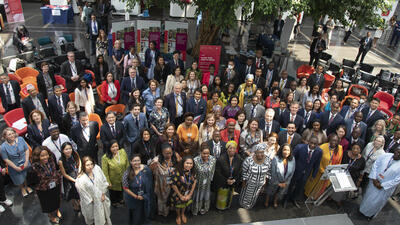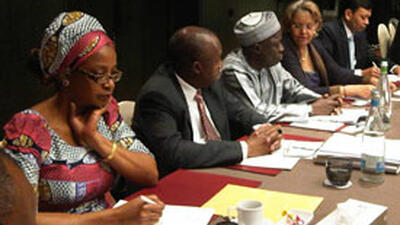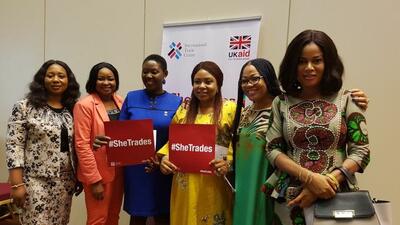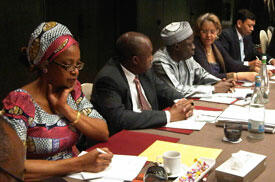
ITC assists Nigeria on trade-policy reform (en)
Responding to a request from the Government of Nigeria, the International Trade Centre (ITC) recently hosted a high-level roundtable, including a peer review, to help stake the way ahead for Nigeria’s new trade policy. Currently being prepared, the updated policy aims in particular to strengthen the standing of small and medium-sized exporters. In an informal setting, Nigerian officials were able to tap into the views of experts from the ITC, WTO, academia and officials from emerging economies that have faced similar issues.
ITC’s Executive-Director Ms Patricia Francis said that ITC was ready to offer valuable support to the Government’s efforts in several ways. She pointed in particular to the creation of ‘value addition’ in agriculture, which holds the potential to reduce poverty in rural areas, but also in regional trade integration, with an emphasis on the regional value chains in West Africa, including trade facilitation across federal states and within the ECOWAS region, and especially as a partner in trade promotion.
Nigeria’s delegation was led by Mr Dauda Shuaibu Kigbu, the Permanent Secretary for Trade and Investment, and Mr Frederick Agah, the Permanent Representative to the WTO. They noted that Nigeria had last updated its trade policy in 2002 and that the new policy document would seek to address diverse issues, such as the promotion of non-oil exports that could contribute to reducing youth employment.
Need for political will
Experts attending the meeting in Geneva on 1 November highlighted the importance of political will in order to see through the implementation of major reforms. They also stressed the need to engage with stakeholders from the private sector to successfully build a constituency in favour of such politically difficult reforms.
Certain specific recommendations were made, including the use of benchmarking in the trade policy document, which could help monitor the implementation of new policy measures and help create coherence in sectoral policies between various government departments, and as such achieve the common objective of expanding and diversifying exports.
Much emphasis was laid on appropriate and smart pro-competition regulations to accompany the liberalisation of trade in services. These reforms are expected to bring about cost-effective and efficient provisions of infrastructure and social welfare services (such as telecommunications, logistics, finance, education and health), which are also important for export competitiveness in other sectors, including agriculture and manufacturing.
Other trade-policy measures discussed included Nigeria’s tariff structure, trade facilitation measures, the need to remove certain types of non-tariff barriers (particularly import bans) and make their application more transparent, as well as the need to find ways to attract investment to upgrade the quality of physical infrastructure.




